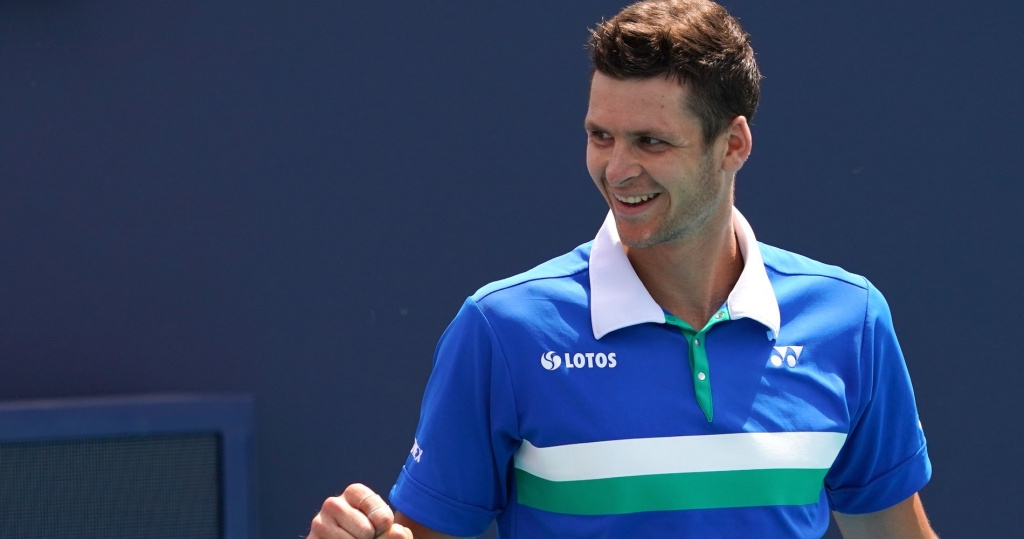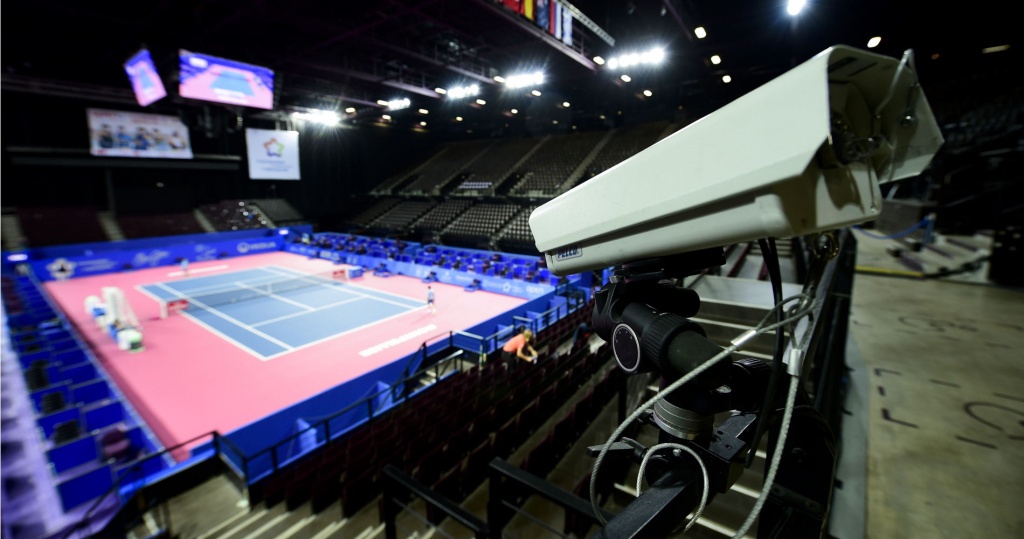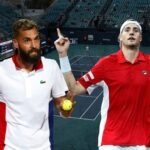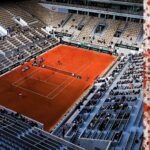Is the ATP Tour ready for the post Federer and Nadal era? – Match Points #26
In the latest edition of Match Points, Marion Bartoli, Ben Rothenberg and Simon Cambers discuss the ATP Tour’s preparedness for life after Federer, Nadal & Djokovic, the missed opportunity for the other top players at Miami, and the increasing adoption of electronic line-calling
With the clay-court season well under way, there have been a lot of talking points in the tennis world. The absence of the Big 3, the “missed opportunity” for the “Next Gen” of players in Miami, and the rapid adoption of electronic line-calling in the midst of a pandemic were some of the major topics up for discussion by Tennis Majors’ expert panel.
Former Wimbledon champion Marion Bartoli joined journalists Ben Rothenberg and Simon Cambers to talk about these topics in the latest episode of Match Points, hosted as always by Josh Cohen.
Is men’s tennis ready for life after the Big 3?
Bartoli believes not, citing the significant drop in viewership ratings for the Miami Open final between Hubert Hurkacz and Jannik Sinner, compared to the 2019 final between Roger Federer and John Isner.
“Not at all… And probably if you go out into the streets and ask who won the Miami Open, even in Miami, I don’t think a lot of people would be able to answer that question unless you are a tennis fanatic and you know what’s exactly going on,” she says.
Cambers says the ATP Tour will find it tough to replace the Big 3 – and that the ATP Tour should promote the new generation of players by highlighting their own strengths, rather than as a replacement.
“It’s ready. It’s just not going to be as good, is it? Who’s going to replace Federer, Nadal & Djokovic? I think you are looking at two of the biggest icons in any sport over the past 50 years and Djokovic too, who in terms of dominance, the three of them, how do you replace them? “I don’t think the tour should try to market those guys in the same breadth or say that’s what they are doing. This has to be a new breed and they have to work really, really hard at it.”
Rothenberg says the next few years will be a time for the ATP Tour to rebuild, adding that the men’s game has lacked a defining torch-passing moment, unlike the women’s tour which had Naomi Osaka defeat Serena Williams in the US Open final in 2018.
“I think these are going to be some rebuilding years for the ATP. But construction is already underway. Once you get someone like Hurkacz winning Miami, now for the rest of his time entering draws, Hurkacz will be Miami champion… and when he makes a Roland-Garros quarter-final or something if he does, it won’t be as random.”
“But there will be some rough times as that transition happens because the men really haven’t had a big torch-passing moment, like the women did when Naomi Osaka beat Serena Williams in the US Open final… where a young guy wins a Grand Slam final over one of the Big 3 and that moment will be big for the sport.. until then the gap does really look big.”
Who missed a major opportunity in Miami?
The absence of the Big 3, along with Dominic Thiem, from Miami had been presented as a wonderful opportunity for the next set of players such as Daniil Medvedev, Alexander Zverev and Stefanos Tsitsipas to take advantage and add one of the most important titles on the calendar to their resume. However, it was the 26th-seeded Hurkacz who came through, beating Sinner in the final.

Cambers says recent results have to be viewed in the context of the current global crisis and the bubbles that players are put in, which makes it tougher for them to peak on a regular basis.
“I think Tsitsipas (missed the opportunity most), because I think he’s the one who needs to put himself above the others and show the Medevdevs that he can match them.”
Rothenberg names Andrey Rublev as the player who he felt missed the Miami opportunity.
“For one name, I would say Rublev because he made the semis… Rublev did admit afterwards that the nerves got to him because once it got to the semis, especially after Sinner was in the final beating Bautista Agut, Rublev really thought “Wow. I should win this tournament”. It’s tough to do something you have never done before.”
Bartoli agrees with Rothenberg, adding that the Russian has yet to claim a big title like a Masters 1000 or season-ending ATP Finals title, something that the other favourites in Miami already have.
“Tsitsipas and Medvedev already won big events. They won the Masters at the end of the year,” he says. “Zverev has won a lot of Masters 1000, he has won the year-end Championships. Of course, they want to win a Masters 1000 title but I don’t think they took it that badly. For Rublev, it was a massive opportunity because he was playing great and he lost to someone (Hurkacz) who had not won a lot of matches before coming into the Miami Open.”
Should all tournaments go to electronic line calling?
Due to the pandemic, tennis tournaments have rapidly adopted the electronic line-calling system. While that may be a boon for players who are more likely to be satisfied with a machine-generated decision, it has also impacted the jobs of several thousands of linespersons on the tennis tour – a trade-off that the panel appeared to be torn by.
Cambers says moving to an all-electronic Tour would not be wise.
“For all tournaments? No, because they can’t afford it,” he says. “Also, being a linesperson is a path to being an umpire, it’s your first step in. You are denying the people the chance of employment.”
As a former player, Bartoli says she knows how maddening the experience of a bad call by an official can be. But the Frenchwoman agrees with Cambers’ on job losses and wants a middle ground, even though she is not sure of what that would look like.

“As a player point of view, it’s much better to have a Hawk-Eye call every single time you’re on the court.. especially on clay where there has been so much debate on the line calls there,” she says.
Rothenberg says that the pandemic had sped up the adoption of electronic line calling and added that the friction in matches created by close line calls is something that he has missed at recent tournaments.
“As Marion mentioned, the Viktor Troicki moment, those moments are important. John McEnroe, years later, named his book – not “I’m a Wimbledon champion” – he named it after complaining at a chair umpire – “You Cannot Be Serious”. Those are iconic moments for the sport.”






